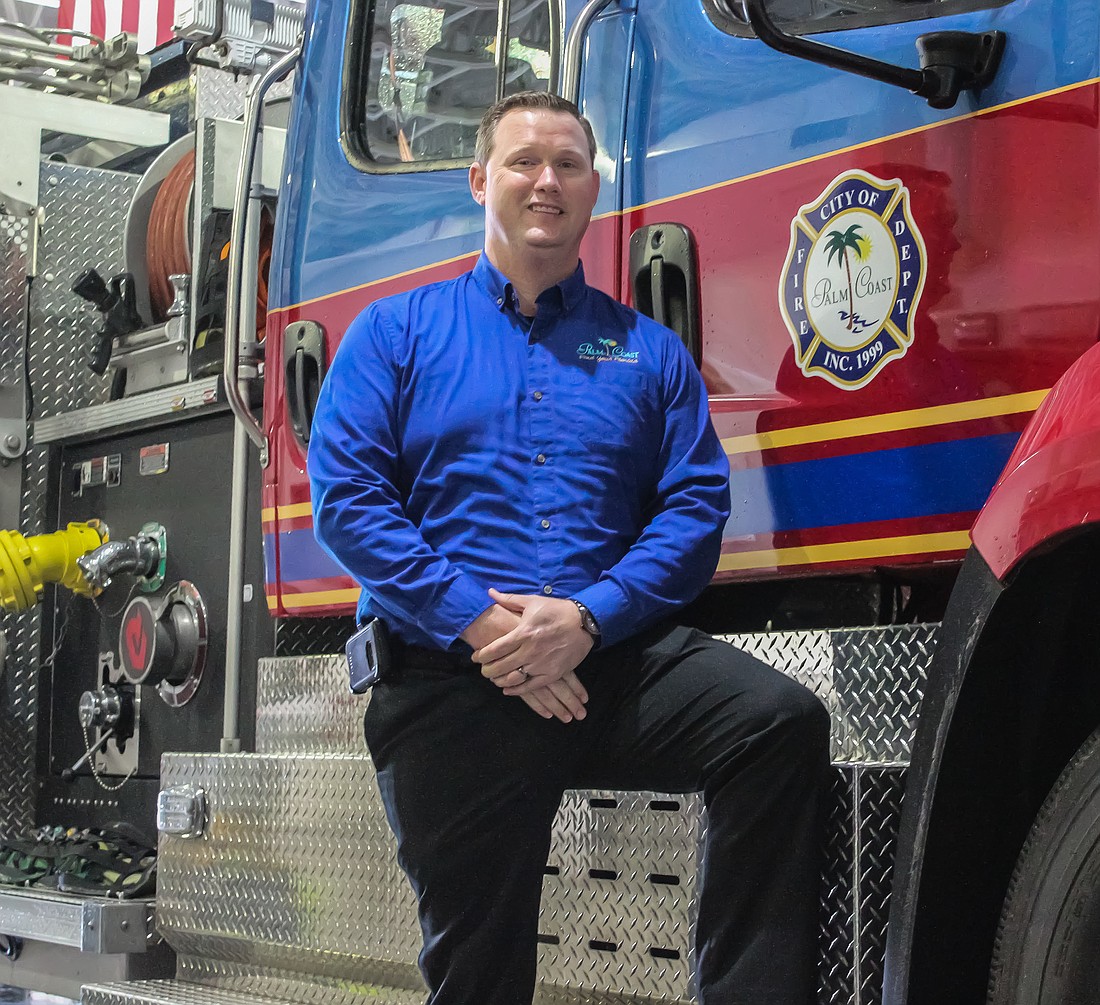- December 15, 2025

Tim Wilsey still remembers the first fire he responded to as a certified volunteer firefighter.
It was a single-room fire at a house in Palm Coast’s W-section. Fresh out of fire school, he could finally enter the “hot zone.”
He was excited — and then, when Wilsey entered the small bedroom, the ceiling collapsed and shut the door on him. He checked the windows — they were barred.
Somehow, he had to figure out a way to escape the burning room.
Wilsey didn’t panic. He regained his focus and removed the debris that was blocking the door.
He was only in the room for a couple of minutes. But it felt like an eternity.
“You have to keep your cool and stay level-headed,” Wilsey said. “Just that quick you can become trapped as a firefighter. Situational awareness always has to be on the top of your mind.”
That incident was nearly 13 years ago.
Wilsey, who moved to Palm Coast from New Orleans in 2002, has been involved with the Palm Coast Volunteer Firefighters for 14 years. He started out as an uncertified firefighter and worked his way up the ladder. He’s been a captain for eight years.
“Tim is always there when we need him. He’s reliable, dependable. He offers guidance when we need it. He has a servant’s heart. He truly cares about the community he lives in.”
Patrick Juliano, Palm Coast Fire Department
Palm Coast has a professional, paid firefighting staff. But the volunteers, about 60 individuals, are the support system. They’re on-call 24 hours, seven days a week. They’re usually called in for major events such as structure fires and wildfires.
And they don’t get paid. They all have day jobs.
“It was my way of giving back,” said Wilsey, who works as a senior staff assistant for the city of Palm Coast. “You don’t do this to chase money. You do it because it’s a passion that you have. It’s to help your fellow man and your community.”
Wilsey’s most memorable moment as a volunteer occurred a decade ago.
He wasn’t on-shift. He’d just finished a breakfast meeting at a Denny’s with other volunteers when a distressed woman showed up. Her infant, who was hooked up to a ventilator in a stroller, was not breathing.
Wilsey quickly diagnosed the problem: The woman was holding the baby’s stroller at an angle. The baby’s saliva had backwashed, and he couldn’t breath as a result.
Wilsey pulled the stroller off the curb, grabbed a suction ball and siphoned out the fluid. After a few heart-wrenching moments, the baby gasped and squeezed Wilsey’s finger. The baby was breathing.
“I was just in the right place at the right time,” Wilsey said.
Wilsey doesn’t see action too often anymore. As a captain, he’s responsible for a lot more administrative work. In addition, the number of page-outs to volunteers has dropped because the professional firefighters’ response times have improved.
But when his pager does buzz, when the moment to step up does arrive, there’s still a burst of excitement.
“I think when the excitement is no longer there, it’s time to throw in your hat,” Wilsey said.“When that pager goes off, you’re excited to get to the station. You want to help. That’s what you want to do. That’s why you’re here.”